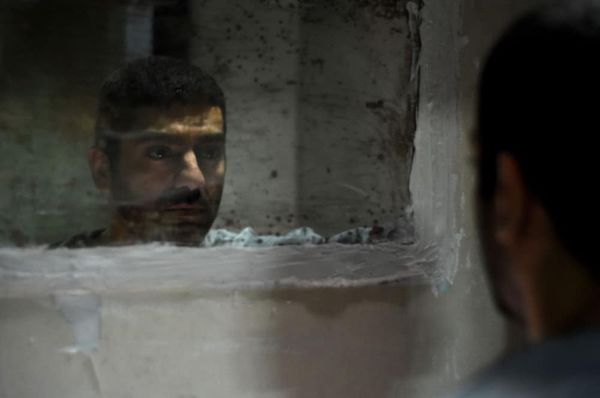Eye For Film >> Movies >> There Is No Evil (2020) Film Review
There Is No Evil
Reviewed by: Amber Wilkinson

When it comes to the justice system of Iran, Mohammad Rasoulof has certainly been on the receiving end. The Iranian filmmaker, who won the Berlin Golden Bear last year for this portmanteau film musing on the death penalty, is under a filmmaking and travel ban and is still threatened with jail by his country's government.
There Is No Evil is the name of the first of the short films in this collection, which also includes She Said, 'You Can Do It', Birthday and Kiss Me. Each film considers the impact of the death penalty from a different angle, but there is also a slow build through the quartet as Rasoulof schools us in the ins and outs of a judicial system in which not only those who are directly sentenced to death can find themselves condemned as a result.

If you didn't know that the first segment concerned capital punishment, you might wonder where things are going as we watch Heshmat (Ehsan Mirhosseini) leave work and go home to his family for the evening complete with all the domestic duties and tensions that entails. Even if you are armed with that knowledge - and if you've read anything about the film, you can't avoid that - the ending of this still comes as a shock, brought home not just by what happens but by a carefully worked colour scheme that judiciously uses neon greens and reds to build the mood.
This idea of the death penalty being embedded within everyday life in some fashion is at the crux of this collection, with Rasoulof showing how the act of taking another human life bleeds into everything it touches, although he doesn't pass judgement on those involved, pointing instead at the system they are part of. She Said, 'You Can Do It' takes on this aspect directly, as we see a young soldier Pouya (Kaveh Ahangar) having a crisis of conscience in the hours before he is due to pull the stool away from beneath someone's feet. It's the middle of the night and his restlessness awakens his squadmates. It's a neat set-up for a moral maze debate which will soon give way to thriller elements as Pouya makes a decision, accompanied by a nerve-shredding spot of scoring from Amir Molookpour. Ahangar's sweaty, nervous performance is a standout in a film filled with impressive work and as he walks down the corridor cuffed to the prisoner, a casual observer would find it hard to know which of the men looks the most like he is about to lose his life.
Having armed us with the knowledge that many soldiers are caught as unwilling cogs in the mechanism of the death penalty - Rasoulof drops us into the life of another, Javad (Mohammad Valizadegan), who if it wasn't for his uniform could be a train-hopping vagrant. He's turned up unexpectedly for the birthday of his girlfriend Na'na (Mahtab Servati), with a plan to propose, but finds himself stumbling in on the family's grief. To say too much about the plot would be to spoil Rasoulof's cleverly worked tale but it succeeds not just because of the way he brings the contrasting emotions of joy and anguish into almost unbearable proximity but also because the whole piece builds on the foundation laid by the previous two sections.
The final chapter, which could, potentially, be directly related to the second if you choose to read it that way, considers young student Darya (Baran Rasoulof) who is paying a visit to her uncle (Mohammad Seddighimehr) and his wife Zaman (Jilla Shahi), who live in a remote part of Iran. That the pair's faces are filled with mixed emotions as they greet Darya at the airport hints at the emotional problems to come as the story unfolds. This section, more than the others shows the long reach of the death penalty and its unexpected implications. Although this is specifically focused on the vagaries of the Iranian system, there's food for thought here about the concept of execution more generally, particularly regarding the moral implications of ordering someone to take another's life in the course of their job.
Reviewed on: 06 Mar 2021
















